Built for gobbling fruit, cedar waxwings are striking, social birds.

With bright pops of color, bold markings and slim, shiny bodies, cedar waxwings are a sight to behold. Their behavior is exciting to watch, and they snatch berries in their bills before swallowing them whole—sometimes while hovering underneath a branch.
Waxwings sport sleek bodies with black masks over their eyes and a prominent tan crest atop their heads. The coloring of males and females is nearly identical. These distinctive birds are slightly smaller than a robin, with a large head and a short wide bill. Their wings are light gray, bellies are a soft yellow and tails have a bright yellow tip.
Denne historien er fra December/January 2019-utgaven av Birds & Bloom.
Start din 7-dagers gratis prøveperiode på Magzter GOLD for å få tilgang til tusenvis av utvalgte premiumhistorier og 9000+ magasiner og aviser.
Allerede abonnent ? Logg på
Denne historien er fra December/January 2019-utgaven av Birds & Bloom.
Start din 7-dagers gratis prøveperiode på Magzter GOLD for å få tilgang til tusenvis av utvalgte premiumhistorier og 9000+ magasiner og aviser.
Allerede abonnent? Logg på

Basics of Hydroponics
Use these top tips and plant picks to have a successful soil-free garden
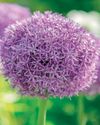
Rooted in Resilience
These hardy perennials will thrive in most zones
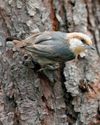
Social and Supportive
Brown-headed nuthatches take a helpful approach to raising their young
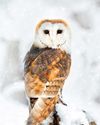
All About Owl Pellets
And why you should give a hoot about them
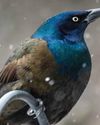
Ask the Experts
Advice from our pros about houseplants, bird feeding and more

BRING THE OUTDOORS IN
Making a terrarium is about as close as you can get to a Zen DIY project. Once you have gathered the proper materials and squared away your plant selections, it's as simple as layering it all together and watching your mini ecosystem thrive. Here, I'll walk you through my foolproof process and cover all the required elements for good filtration, healthy soil, strong root growth and resistance against fungus and disease.

GROW THIS. NOT THAT
Six easy-to-grow houseplants—and six that may not be the right choice for you
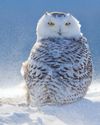
Winter MAGIC
Forecasts may be frigid, but grab your binoculars because birding opportunities are still incredible
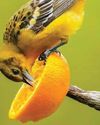
Sense or Nonsense? - Why some birds can taste and smell - but others can't
Does a porcelain berry taste like a blueberry to a gray catbird? Does a block of lard smell like frying bacon to a northern flicker? The short answer is no. While some avian species do have a well-adapted sense of taste or smell, they can't distinguish between flavors and odors the way humans can. They're not picking up every ingredient in the suet you put out, says José Ramírez-Garofalo, an ornithology researcher at Rutgers University in New Jersey and the director of Freshkills Biological Station in Staten Island, New York.

Maple Mania - Amazing facts about this fall foliage mainstay
Amazing facts about this fall foliage mainstay